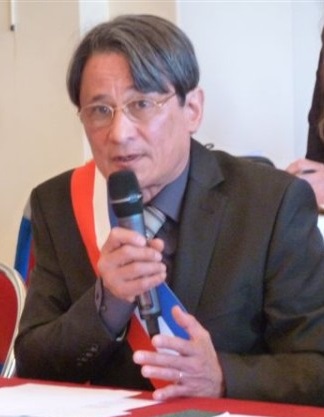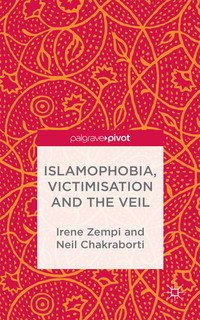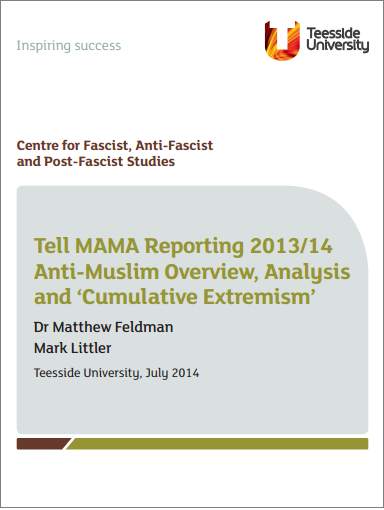 Two mothers were refused access to the beach at Wissous, Essonne, because they were wearing Muslim headscarves.
Two mothers were refused access to the beach at Wissous, Essonne, because they were wearing Muslim headscarves.
The women had taken their children to the popular summer leisure venue at the weekend, but they fell foul of a new bylaw that refuses entry to anyone wearing distinctive “religious symbols”.
Patrick Kitnais, director of the mayor’s office told Europe 1 that the women were wearing a hijab, a scarf that covers the head but does not hide the face. “The mayor was there, so he denied access to these people,” he said.
The town’s UMP mayor, Richard Trinquier [pictured], who ousted Socialist incumbent Roy Regis-Chevalier in March’s municipal elections, insisted he had applied “the law of the Republic and secularism”, in refusing entry to the two women, and said anyone wearing a distinctive cross or yarmulke would also be banned.
He said that the beach at Wissous is not a public place. It is, he said, a public establishment – and therefore it is bound by laws that prohibit the wearing of religious symbols. “If women remove their veils, they are welcome,” he said.
A 2004 law governing the wearing of conspicuous religious symbols applies only to educational establishments.
Former mayor Mr Regis-Chevalier branded the incident an “Islamophobic act”. And Abdelkrim Benkouhi, president of local Islamic association Al Madina, said: “The children were shocked and did not understand why they could not play on the inflatables like every other child. In previous years, there have been no problems.”
Representatives of Al Madina met the mayor to discuss the matter, but the two sides could not reach an agreement, Le Parisien reports. “The mayor says it is a private space. This is pure and simple discrimination,” Mr Benkouhi said.
Continue reading →
 The Austria Presse Agentur reports that a proposal by the far-right Freedom Party (FPÖ) to introduce a law on the French model banning the “concealment of the face in public space” has failed to find a majority in the Austrian parliament.
The Austria Presse Agentur reports that a proposal by the far-right Freedom Party (FPÖ) to introduce a law on the French model banning the “concealment of the face in public space” has failed to find a majority in the Austrian parliament.
 The government of Spain’s Catalonia region said on Thursday it would push ahead with a planned burqa ban after a recent European Union
The government of Spain’s Catalonia region said on Thursday it would push ahead with a planned burqa ban after a recent European Union  Two mothers were refused access to the beach at Wissous, Essonne, because they were wearing Muslim headscarves.
Two mothers were refused access to the beach at Wissous, Essonne, because they were wearing Muslim headscarves. A Jasper, Ala., nursing home violated federal law when it refused to allow a Muslim employee to wear a hijab (the traditional covering for the hair and neck that is worn by Muslim women) on the job, the U.S. Equal Employment Opportunity Commission (EEOC) charged in a workplace discrimination lawsuit filed June 30. EEOC v. Shadescrest Health Care Center, ND Ala. Case 6:14-cv-01253-SLB (June 30, 2014). The agency also contends that Shadescrest fired the employee in retaliation for filing a complaint with the EEOC.
A Jasper, Ala., nursing home violated federal law when it refused to allow a Muslim employee to wear a hijab (the traditional covering for the hair and neck that is worn by Muslim women) on the job, the U.S. Equal Employment Opportunity Commission (EEOC) charged in a workplace discrimination lawsuit filed June 30. EEOC v. Shadescrest Health Care Center, ND Ala. Case 6:14-cv-01253-SLB (June 30, 2014). The agency also contends that Shadescrest fired the employee in retaliation for filing a complaint with the EEOC. Muslim women who wear a full veil say there are no-go areas in Leicester which they feel frightened to visit – even in a car. They claim they are subjected to abuse every day and that it is getting increasingly difficult to avoid such incidents in the city centre.
Muslim women who wear a full veil say there are no-go areas in Leicester which they feel frightened to visit – even in a car. They claim they are subjected to abuse every day and that it is getting increasingly difficult to avoid such incidents in the city centre. As part of his party’s plan to
As part of his party’s plan to  The number of reported instances of anti-Muslim hate crime in the UK has risen sharply since the murder of a British soldier in London last year, with women wearing traditional Islamic dress most likely to be the victims of abuse and street attacks, according to a new study.
The number of reported instances of anti-Muslim hate crime in the UK has risen sharply since the murder of a British soldier in London last year, with women wearing traditional Islamic dress most likely to be the victims of abuse and street attacks, according to a new study.